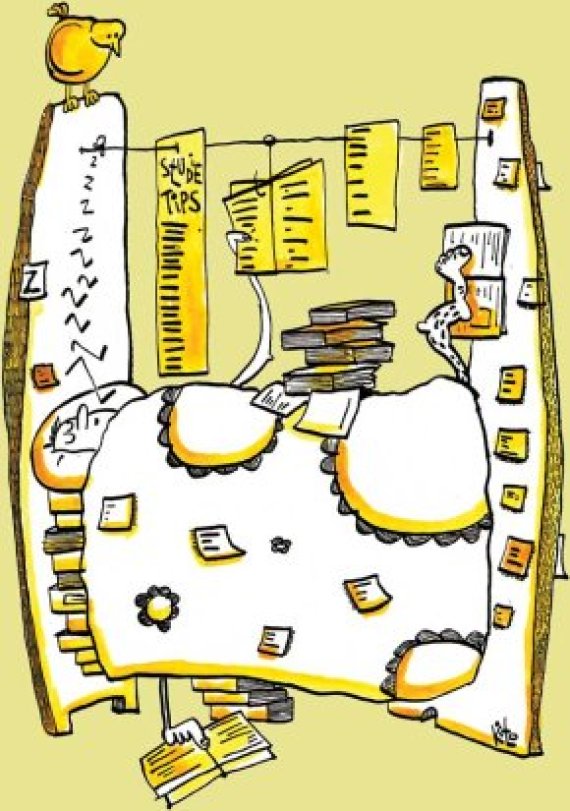Scores of books have been written to help you boost the effectiveness of your study skills. But thankfully you don’t have to ferret through them all: Joep van Agteren and Sasha Fayek Ramadan, students at Maastricht University, have done that for you. Below you will find five tips from their book, Je diploma in honderd pagina’s (Your degree in 100 pages). They believe these guidelines will increase your chances of ending the year with fabulous marks, and still leave you time to kick back and enjoy the sunshine! Go to lectures, if you still have any. No doubt this sounds about as obvious as it gets but there’s more. Be well-prepared and actively participate. So no listening with half an ear while you’re using WhatsAppen. Think about what the lecturer is saying. Does it make sense? Ask questions if anything is unclear. And write up your notes straight away. That way you will get a thorough grasp of the topic. You probably have textbooks you need to wade through before you take your exams. This will be a whole lot quicker if you learn speed reading. This requires you to adapt your eye movements but the pay-off for the average reader is an increase in reading speed of about 300 per cent. One of the skills it involves is reducing the number of points that you focus on in a sentence. The fewer the focus points, the quicker you read. If you concentrate instead on a couple of words in a sentence, in time (yes, it takes practice) you should be able to read a whole sentence at a single glance. Your speed will increase as soon as you have mastered this technique. Good. You have attended lectures, skipped that drink with your fraternity and learned to scan chapters. What next? How can you make sure you commit what you read to memory? Applying structure helps you grasp the essence of a text and make connections between its parts. There are three ways of doing this: summarizing, concept mapping and mind mapping. Summarizing is a question of stripping down the text to its essential information. Concept mapping builds on that principle but involves building a hierarchy with the general terms at the top and the more specific terms at the bottom. When you look for links between terms you are actively engaging with the text and that helps you remember it better. Mind mapping works in the same way but with free association; you link all the concepts related to the key topic with lines and arrows. And you can add sketches to help trigger your memory. Thinking of pulling an all-nighter to cram in some study hours? Not wise. Your memory relies on sleep and attention. You can hold your attention for 20 to 30 minutes, but over the next 90 minutes it will diminish. So study for 30 minutes, then take a couple of minutes’ break, and after 90 minutes do something completely different, like the shopping or sport. And go to bed on time. Research shows that sleep helps us remember explicit information. Even a short ‘power nap’ is not a bad idea. All these tips are useful only if you follow this next tip: make your study your first priority. Your date with the cute nutrition student or the dishy agrotechnologist is going to have to be put on hold, and your Facebook profile isn’t going to be updated for a while. Take time to relax, but try saying ‘no’ to an evening spent boozing in the pub. Win 100 pages of study tips Would you like more study tips? Resource is raffling three copies of Je diploma in honderd pagina’s. Send a mail to resource@wur.nl and, who knows, perhaps you will soon be racing through your course. The winners will be contacted personally and announced on our website. Unfortunately for our international students the book is only available in Dutch.
Study skills: here’s how…
As the academic year draws to a close there's still one last chance to shine. So do yourself proud and start the summer without the headache of resits. Now's the time to brush up your study skills.

